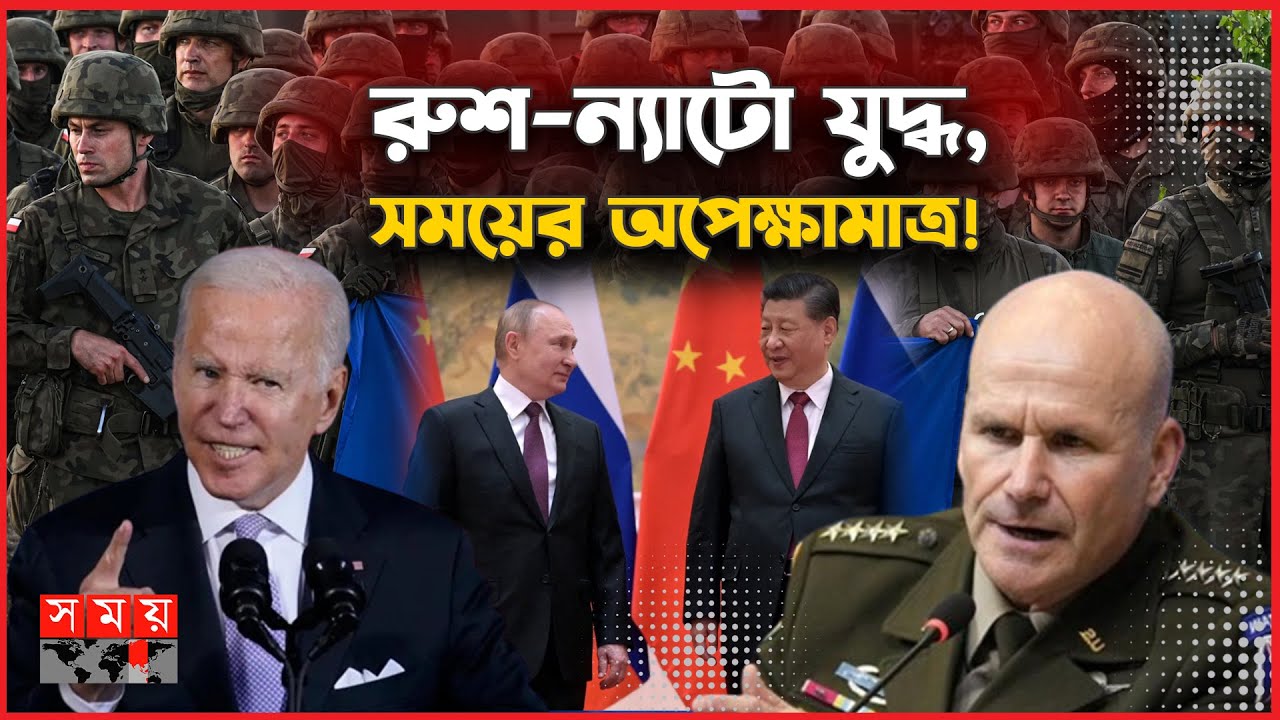The Pseudo-Woke 'DECOLONIZING RUSSIA' Summit
Summary
TLDRThe upcoming conference 'Decolonizing Russia' aims to address Russia's imperialist tendencies, particularly its aggression in Ukraine, Syria, Libya, Georgia, and Chechnya. Hosted by the Helsinki Commission, it explores the moral and strategic imperatives of decolonizing Russia to foster European security and stability. The discussion raises questions about Russia’s involvement in these regions, with some challenging the notion of Russian imperialism, especially in contexts like Syria and Libya where Russia was invited by local governments. The conversation also critiques the 'woke' rhetoric and the perceived over-scrutiny of Russia’s imperial actions.
Takeaways
- 😀 The conference is called 'Decolonizing Russia,' organized by the Helsinki Commission, discussing Russia’s imperial tendencies and its aggression in Ukraine, Syria, Libya, and other regions.
- 😀 The discussion highlights Russia's imperial history and its consistent aggression against non-Russian nations, catalyzing debates about the need to decolonize Russia.
- 😀 Participants include experts such as Casey Michel, author of 'American Kleptocracy,' and Hannah Hopko, former member of the Ukrainian parliament.
- 😀 The speaker questions the narrative of Russia's 'barbaric' wars in Syria and Libya, pointing out that Russia was invited by the legitimate governments of both countries.
- 😀 The speaker raises the point that, in both Syria and Libya, Russia's military intervention was sanctioned by one of the two governing factions in those countries.
- 😀 There is a suggestion to apply the concept of decolonization more broadly, questioning whether other regions, particularly those with more recent colonial histories, should also be considered in these discussions.
- 😀 The conversation touches on the idea of focusing on domestic decolonization efforts before addressing foreign imperialism, suggesting a 'clean your own house' approach.
- 😀 The speaker critiques the use of 'woke' rhetoric and the leftist framing surrounding the decolonization conversation, questioning its consistency and effectiveness.
- 😀 The speaker notes that Russia has already been under significant scrutiny for its imperial actions, challenging the idea that it has escaped international attention.
- 😀 Despite the critiques, the speaker acknowledges the value of attending the conference and engaging with its diverse panel, which promises an insightful discussion on decolonization and imperialism.
Q & A
What is the main topic of the upcoming conference discussed in the transcript?
-The conference is titled 'Decolonizing Russia: A Moral and Strategic Imperative,' and it is focused on addressing Russia's imperial tendencies and the need to decolonize the Russian Federation to improve European security and stability.
What are the key historical examples mentioned to illustrate Russia's imperial actions?
-The historical examples include Russia's war on Ukraine, Syria, Libya, Georgia, and Chechnya, where the transcript highlights Russia's aggressive military actions and the suppression of indigenous non-Russian nations.
What is the argument presented regarding Russia's intervention in Syria and Libya?
-The conversation suggests that Russia's involvement in Syria and Libya could be seen as less imperialistic since Russia was invited by the governments of those countries, with Syria's government requesting Russia's intervention and a Libyan government bringing in Russian mercenaries.
How does the conversation challenge the framing of Russia's imperialism?
-The conversation challenges the framing by suggesting that Russia's actions in Syria and Libya may not constitute imperialism if they were invited by the respective governments. There is also skepticism about the exclusive focus on Russia's imperialism while other recent colonizations may be overlooked.
What does the term 'decolonizing Russia' refer to in the context of the conference?
-The term refers to the idea of addressing Russia's internal empire, particularly its control over non-Russian nations, and the suppression of their self-expression and self-determination. The conference aims to discuss how Russia can become a more viable partner in European security by confronting its imperial past.
What is the role of the Helsinki Commission in the conference?
-The Helsinki Commission, also known as the Commission on Security and Cooperation in Europe, is organizing the conference, which seeks to explore Russia's imperialism and discuss how it can be decolonized for the sake of European security.
Who are some of the key participants in the conference, and what are their roles?
-Key participants include Casey Michael from the Hudson Institute, author of *American Kleptocracy*; Hannah Hopko, a former member of the Ukrainian Parliament; Erica Marat, an associate professor at the National Defense University; and Fatima Lee, a Circassian journalist.
What is the critique of the language used in the discussion of Russia's imperialism?
-The critique points out that the language of decolonization and imperialism, particularly in the context of Russia, can sometimes be oversimplified and even orientalizing. It suggests that the rhetoric of 'imperialism' might not fully capture the complexities of international interventions and sovereignty.
How does the conversation relate the concept of decolonization to other global issues?
-One participant raises the idea that if we are discussing decolonization in the case of Russia, we should also address other regions where colonization has occurred more recently. The conversation suggests that decolonization should start with more immediate issues before turning attention to Russia.
What does the phrase 'clean up your own side of the street' imply in the context of the conversation?
-This phrase is used to suggest that before criticizing or focusing on decolonizing Russia, one should first address colonial issues within their own country or sphere of influence. It reflects the idea of prioritizing self-reflection and self-improvement before criticizing others.
Outlines

此内容仅限付费用户访问。 请升级后访问。
立即升级Mindmap

此内容仅限付费用户访问。 请升级后访问。
立即升级Keywords

此内容仅限付费用户访问。 请升级后访问。
立即升级Highlights

此内容仅限付费用户访问。 请升级后访问。
立即升级Transcripts

此内容仅限付费用户访问。 请升级后访问。
立即升级浏览更多相关视频

Siria, cosa cambia per la Russia con la caduta di Assad? - Dispacci dalla Russia

Kenapa Rusia Gila-gilaan Menyerang Ukraina?

রাশিয়ার বিরুদ্ধে কেন যুদ্ধের প্রস্তুতি ন্যাটোর? | Russia-Ukraine | NATO | Somoy International

Zelfreguleren oefenen - luisterfragment 2 - Rusland wil eigen eurovisiesongfestival organiseren

Phe đối lập Syria tuyên bố nóng với Nga sau khi lật đổ Tổng thống Assad

Putin: West's air defenses have 'no chance' against Russian ballistic missile
5.0 / 5 (0 votes)
